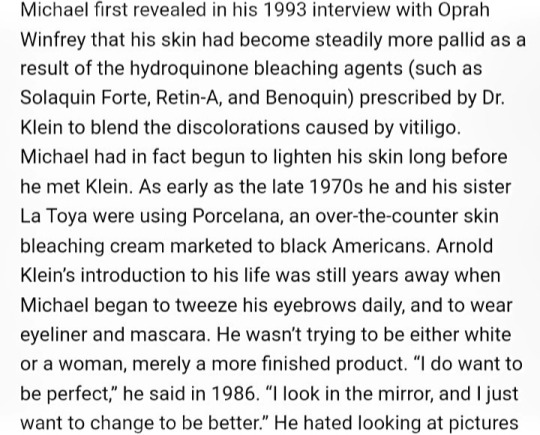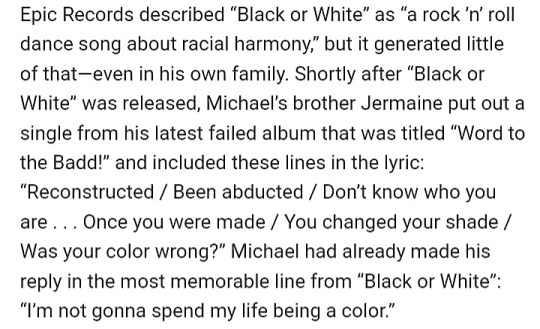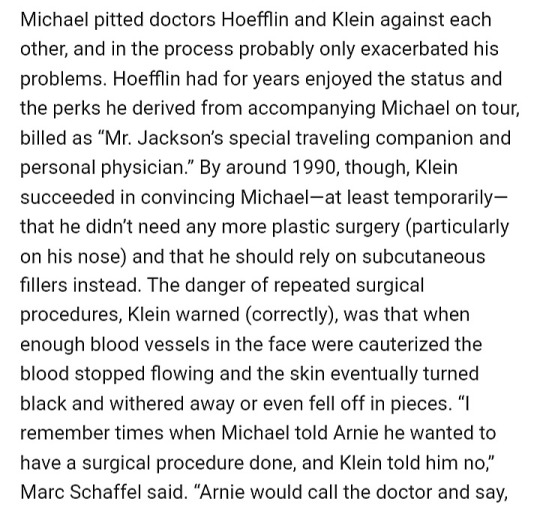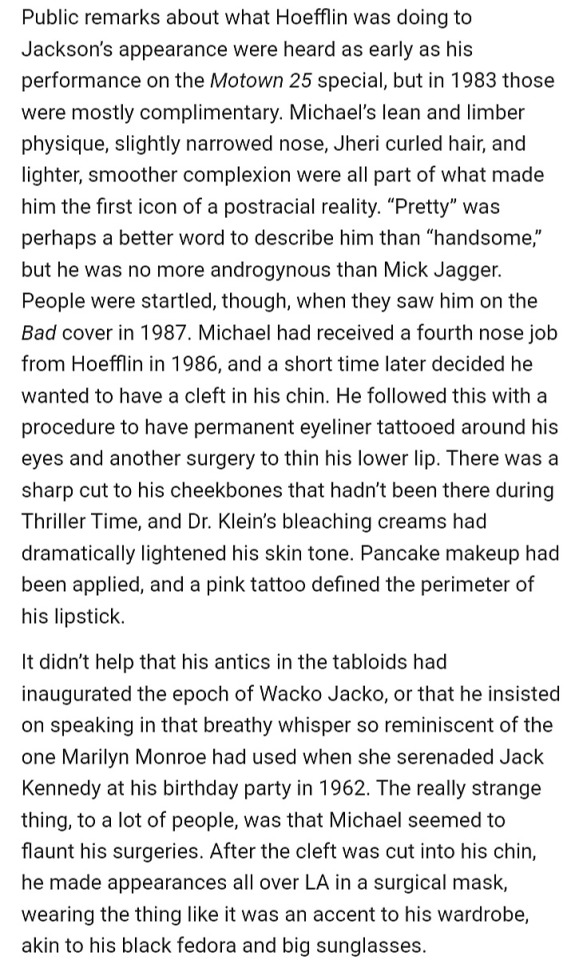#benoquin
Explore tagged Tumblr posts
Text
Why Benoquin is best option for Vitiligo Treatment ?
Benoquin: The Best Option for Vitiligo Treatment
Vitiligo is a skin condition characterized by the loss of pigment-producing cells called melanocytes, leading to white patches on the skin. These patches can affect any part of the body, including the face, hands, feet, and even the mucous membranes. The exact cause of vitiligo is not entirely understood, though it is widely believed to be an autoimmune condition. It can have significant psychological and social effects on those affected, often leading them to seek various treatment options. One of the most effective and frequently discussed treatments is Benoquin (Monobenzone), a depigmenting agent that has been widely recognized for its ability to manage vitiligo. This article delves into why Benoquin is considered one of the best options for vitiligo treatment, examining its mechanism of action, effectiveness, safety profile, and comparison to other treatment options.
Understanding Vitiligo
Vitiligo affects about 0.5% to 2% of the global population and does not discriminate based on race, gender, or age. The condition occurs when the body’s immune system mistakenly attacks melanocytes, causing depigmentation. Over time, the affected areas grow larger, and the condition can spread to other parts of the body. Vitiligo is classified into two types:
Non-segmental vitiligo (NSV): The most common type, where white patches appear symmetrically on both sides of the body.
Segmental vitiligo (SV): Less common and affects only one side or part of the body.
Despite various available treatments, such as phototherapy, corticosteroids, and topical immunomodulators, many of these solutions are aimed at repigmentation, which can be slow, unpredictable, and sometimes ineffective for severe cases. This is where Benoquin emerges as a preferred treatment for those with extensive vitiligo.
What is Benoquin?
Benoquin, also known by its chemical name Monobenzyl Ether of Hydroquinone (Monobenzone), is a topical depigmenting agent used primarily to treat vitiligo. Unlike treatments aimed at repigmentation, Benoquin works by completely depigmenting the remaining melanocytes, resulting in a uniform skin tone. It is a prescription medication, typically recommended for people with generalized vitiligo where repigmentation therapies have not yielded satisfactory results.
Mechanism of Action
Benoquin works by inducing permanent depigmentation of the skin. It selectively destroys the remaining melanocytes in the skin, preventing them from producing melanin. The treatment essentially eliminates the contrast between vitiliginous (white) patches and normally pigmented skin. The depigmentation process is irreversible, and over time, it leads to a more even, white skin tone throughout the affected areas.
The active ingredient in Benoquin, Monobenzone, oxidizes melanocytes, leading to their destruction. This process differs from other depigmenting agents like hydroquinone, which merely reduces the production of melanin without killing the melanocytes. Because vitiligo is characterized by a loss of melanocytes, Benoquin is especially suitable for patients seeking a uniform appearance, as it addresses the underlying issue rather than attempting to repigment areas where melanocytes are no longer active.
Why Benoquin is the Best Option for Vitiligo Treatment
Effective for Generalized Vitiligo For individuals with widespread vitiligo, repigmentation therapies often prove ineffective. Phototherapy, topical steroids, and other treatments aim to restore pigment in affected areas but tend to be limited in their success, especially when vitiligo covers large areas of the body. Benoquin, on the other hand, is designed for complete depigmentation and is particularly effective for patients with more than 50% of their body surface area affected by vitiligo. By unifying the skin tone, it offers a cosmetic solution for individuals with generalized vitiligo who struggle with the contrast between pigmented and depigmented skin.
Psychological Benefits Vitiligo can have a profound psychological impact. The visible difference in skin color can lead to social stigmatization, decreased self-esteem, and even anxiety or depression. Benoquin offers the possibility of restoring confidence by creating an even skin tone across the body. Rather than dealing with unpredictable repigmentation therapies, patients who opt for Benoquin can experience relief in knowing they are moving toward a consistent appearance, which can significantly improve their mental well-being and quality of life.
Permanent Solution One of the primary advantages of Benoquin is that it provides a permanent solution to the uneven skin tone caused by vitiligo. Repigmentation treatments often require ongoing maintenance and touch-ups, which can be frustrating and time-consuming. Benoquin’s irreversible depigmentation eliminates the need for continuous treatment, offering long-term results. This can be a game-changer for individuals looking to avoid the lifelong commitment that repigmentation therapies often demand.
FDA Approval and Clinical Backing Benoquin has been approved by the U.S. Food and Drug Administration (FDA) for the depigmentation of skin in patients with vitiligo. This regulatory approval highlights the treatment's safety and efficacy when used under medical supervision. Numerous clinical studies have supported the use of Monobenzone for vitiligo treatment, further establishing its position as a leading option for patients requiring depigmentation.
Cosmetic Benefits The stark contrast between depigmented and normally pigmented skin is one of the most significant challenges for vitiligo patients. This contrast is highly visible, particularly in individuals with darker skin tones. Benoquin helps by eliminating this contrast, resulting in a more aesthetically pleasing and uniform skin tone. For those who struggle with patchy or inconsistent pigmentation, Benoquin offers a smooth and even appearance, enhancing overall cosmetic satisfaction.
Non-invasive and Convenient Unlike some vitiligo treatments that require frequent clinic visits, such as phototherapy or surgical options, Benoquin is a topical medication that can be applied at home. This makes it a convenient and non-invasive solution. Patients can easily integrate Benoquin into their daily routines without the need for time-consuming treatments or recovery periods.
Safety and Side Effects
While Benoquin offers numerous benefits, it’s important to consider potential side effects and precautions. As with any medication, Benoquin is not without risks. Common side effects include:
Redness
Irritation
Itching
Dryness
In rare cases, patients may experience more severe reactions such as blistering or swelling. Due to its potent depigmenting effects, Benoquin should only be used under the guidance of a healthcare professional. It is also essential to note that once the skin is depigmented, it becomes highly sensitive to sunlight. Therefore, patients are advised to use broad-spectrum sunscreens and protective clothing to prevent sunburn and skin damage.
Another consideration is the irreversibility of the depigmentation. Once applied, Benoquin permanently removes pigment from the skin, which is a decision that patients must carefully weigh. This treatment is typically reserved for individuals with extensive vitiligo who are fully committed to the depigmentation process.
Comparing Benoquin to Other Vitiligo Treatments
Several other treatments are available for vitiligo, each with its own set of benefits and limitations. Below is a comparison of Benoquin to other popular options:
Topical Corticosteroids: These are often prescribed to reduce inflammation and may help with repigmentation. However, they are not a long-term solution and may cause thinning of the skin with prolonged use.
Phototherapy (PUVA and NB-UVB): These treatments stimulate melanocyte activity through exposure to ultraviolet light. While they can help repigment small areas of skin, the process is slow and may require months or even years of treatment. Moreover, phototherapy has mixed results, especially in patients with widespread vitiligo.
Topical Calcineurin Inhibitors: Medications like tacrolimus can be used to suppress the immune response in vitiligo. While they are safer for long-term use than corticosteroids, they have limited effectiveness for generalized vitiligo and are more suitable for small, localized patches.
Surgical Options: In some cases, surgical procedures such as skin grafts or melanocyte transplants may be considered. These methods are invasive, expensive, and typically only recommended for stable, small areas of vitiligo.
Compared to these treatments, Benoquin stands out because it provides a permanent, non-invasive solution specifically tailored to patients with extensive vitiligo who are unable to achieve satisfactory results with other therapies.
Conclusion
Benoquin is widely regarded as one of the best options for treating generalized vitiligo due to its ability to provide a permanent and uniform skin tone. Its effectiveness in depigmenting the remaining melanocytes offers a long-lasting solution for patients with extensive vitiligo, addressing both the physical and psychological aspects of the condition. While it is essential to consider potential side effects and commit to sun protection post-treatment, Benoquin’s advantages make it a valuable option for many vitiligo patients. Always consult with a healthcare professional to determine if Benoquin is the right choice based on individual needs and the extent of vitiligo.
0 notes
Text

i see how it is. cowards.
#the answer is around 1988 when he started using Benoquin to treat his vitiligo#Michael Jackson#mobile#x
5 notes
·
View notes
Text
How to Use Benoquin Cream
Before using Benoquin Cream, it's important to consult with a dermatologist to determine if it's the right treatment for you. Benoquin Cream should only be used under the supervision of a healthcare professional.
To use Benoquin Cream, apply a thin layer of the cream to the affected areas of the skin, taking care to avoid getting the cream on unaffected areas. The cream should be applied twice daily, and results may take several months to become visible.
Potential Side Effects of Benoquin Cream
Like all medications, Benoquin Cream has the potential to cause side effects. Some of the most common side effects of Benoquin Cream include:
Redness and irritation at the site of application
Itching or stinging
Skin dryness or peeling
Increased sensitivity to sunlight
If you experience any of these side effects, speak with your healthcare provider. In rare cases, Party Smart Pill Seattle Benoquin Cream can cause more serious side effects, such as skin thinning or scarring. Be sure to follow your dermatologist's instructions carefully to minimize the risk of side effects.
Where to Buy Benoquin Cream in Georgia
Benoquin Cream is a prescription medication that can only be obtained with a prescription from a healthcare provider. If you're in Georgia and looking to buy Benoquin Cream, speak with your dermatologist to obtain a prescription.
Once you have a prescription, you can purchase Benoquin Cream at most pharmacies in Georgia. Be sure to follow your dermatologist's instructions carefully when using Benoquin Cream.
Conclusion
Benoquin Cream can be an effective treatment for vitiligo, a skin condition that causes patches of depigmentation. If you're considering using Benoquin Cream in Georgia, be sure to consult with a dermatologist to determine if it's the right treatment for you.
If you do decide to use Benoquin Cream, be sure to follow your dermatologist's instructions carefully and watch for any potential side effects. With the right care, Benoquin Cream can help reduce the appearance of depigmented patches and improve your skin's overall appearance.
0 notes
Note
Michael Jackson had vitiligo. Which is proven fact by his autopsy.


He also did not bleach his skin but used a cream called Benoquin which is specially used for people who have vitiligo.

Here is a thread on people fake scared of him and their ableism This whole shit started because of the shithole media because they how of course had to portray him as some sort of scary monster.
i get that micheal jackson did a lot of good in the world but he was also a pedophile? 😭 i’m no taylor fan but you can’t say that these other people aren’t “problematic” (too shallow a word i’d say)
any mj anon wants to clarify this? because i had no idea...
77 notes
·
View notes
Photo

Benoquin Cream At Affordable Prices
Fairnglow.com is here to provide you best Benoquin (Monobenzone) vitiligo Treatment with Benoquik, reduce patches, make skin naturally glowing, helps to achieve uniform depigmentation with Skin Lighting agent. Want to know more than please visit us at Fairnglow.com.
1 note
·
View note
Text
Depigmenting substances and skin color lightening methods
Depigmenting agents or skin bleaching-lightening agents are cosmetic products whose function is to correct some of the skin hyperpigmentations (skin spots that appear on the skin over time). This paper addresses the origin of hyperpigmentation, the methods of skin color lightening, and the different depigmenting substances used.
Hyperpigmentations can be produced or aggravated by different factors such as internal treatments with photosensitizers (sulfa or estrogen) or external (Roentgen or ultraviolet rays, cosmetics). Hyperpigmentations have also been recorded in cases of gynecological, pituitary, thyroid, or adrenal disorders. Lately, it has been observed that the use of anovulatory, mixtures of estrogens and progestogens than condition a state of artificial pregnancy, also cause hyperpigmentation.

Methods
Two of the main methods to clarify skin color by reducing skin pigmentation are: bleach already formed melanin, and prevent new melanin from forming (can be inhibited by applying an appropriate agent).
Black skin contains a large amount of melanin pigment in the outer corneal layer, and it can be discolored by oxidation with hydrogen peroxide or, more frequently, chemically reduced to its white form, which is colorless, with Hydroquinone cream.
Inhibitors of the enzyme tyrosinase
Substituted phenols
Such as 4-isopropyl catechol or hydroxyquinone monomethyl ether, which have toxic activity on melanocytes. The enzyme tyrosinase modifies these molecules. It converts them into toxic products capable of destroying melanocytes. It is not recommended to use this type of substances in cosmetic products.

Hydroquinones
They are used in cosmetic formulations, but at doses not exceeding 2% (concentration limited by regulations), since, at higher concentrations, they can cause redness and skin burns. The bleaching action is weak and only shows up after applying for a few weeks or even months; It disappears when you stop applying the Benoquin cream. Its method of the act is not very well clear. Still, it is believed to interfere with the formation, melanization, and degradation of melanosomes.
These products can cause risks of skin irritation at certain doses, so it is recommended to reduce their concentration and increase their activity with the presence of additives also depigmenting, as is the case with ascorbyl palmitate at concentrations of 1-5% or 2% tetrahydroxybenzophenone.
It is recommended that all products bearing hydroquinone derivatives carry a caution label because exposure to solar radiation can quickly reverse the bleaching effect. Also, the solutions darken when exposed to air as a result of oxidation and have to be properly stabilized. The oxidation is very fast if the solution is alkaline. They will have to be stabilized with antioxidant products such as ascorbic acid, citric acid, or sodium metabisulfite. The preparations should preferably be slightly acidic (pH 4-6), and the manufacturing equipment should be made of stainless steel or vitrified to prevent discoloration. It is suggested to reduce get in touch with air.
Hydroquinone preparations should be applied 2-3 times a day over several months, but due to repeated use or excessively high concentrations, local irritation may occur, and treatment should be discontinued.
It cannot be used in areas near mucous membranes, in wounds, or erythematous areas due to sun exposure. They should not be used in children. The pharmaceutical firms are solutions, ointments, creams, and gels.
1 note
·
View note
Text

Benoquin Cream general information.
Benoquin cream is applied to de-pigment the skin as a vitiligo treatment , Vitligo is a skin condition of irregular patches on skin, covering about 50% of the body surface, lose colour and become whitened.
0 notes
Text







#mj#michael jackson#bob jones#arnold klein#steven hoefflin#jermaine jackson#surgery#plastic surgery#skin bleaching#disney#walt disney#peter pan#bobby driscoll#shirley temple#treasure island#hydroquinone#oprah#porcelana#benoquin#solaquin forte#retin a#black or white#splaboo#dangerous album#invincible album#vitiligo#steve hoefflin
0 notes
Link
benoquin

Firstly, you need to eat a balanced diet that contains protein. The body especially needs two proteins, Phenylalanine and Glutamine to manufacture melanin, the pigment in your skin. An alternative is to take these as pills. Anti-oxidant vitamins have also helped some patients. There are prescription creams which can be applied at night to bring the color back. Cortisone and tacrolimus are used most frequently. These take months to work. When the color starts to return it begins as small dots that gradually enlarge.
A newer topical treatment is pepper oil which contains piperine. Recent studies show promise. These topicals work alone but the best results are when they are combined with narrow band ultraviolet light. This is best delivered with the excimer laser or in a light box. An older treatment that is occasionally used is PUVA. Narrowband UVB is better tolerated then PUVA as with narrowband UVB here are no complication such as abdominal pain and the need for eye protection needed with PUVA. With PUVA the patient takes an extract from celery by mouth or applies this chemical on the skin and UVA, the tanning rays are delivered to the skin. Sometimes we use surgery to treat the white areas.
831 856 5302
California USA

Visit To More Information :- https://www.monobenzone.us/
0 notes
Text
How benoquin is useful for our skin ?
Understanding Benoquin Cream: Uses, Benefits, and Considerations
Benoquin cream is a medication primarily used in the management of vitiligo, a chronic skin condition characterized by the loss of pigmentation in certain areas of the skin. This loss of pigment results in white patches that can vary in size and location. Benoquin, a topical treatment, contains monobenzone as its active ingredient, which plays a crucial role in the treatment of vitiligo. In this blog, we will explore the uses, benefits, and considerations associated with Benoquin cream to help you understand its role in skincare.
What is Benoquin Cream?
Benoquin cream is a topical medication formulated to treat vitiligo and other skin conditions where depigmentation is a therapeutic goal. Its primary active ingredient, monobenzone, works by inhibiting the production of melanin, the pigment responsible for skin color. The cream is applied directly to the affected areas of the skin, and its use is generally recommended under medical supervision.
How Does Benoquin Work?
The primary action of Benoquin cream is to cause depigmentation of the skin. Monobenzone, the active ingredient, works by destroying the melanocytes, which are the cells responsible for producing melanin. By reducing or eliminating these cells in the targeted areas, Benoquin helps to unify the skin color, making it less noticeable compared to the surrounding areas.
Uses of Benoquin Cream
Vitiligo Treatment: Vitiligo is a skin condition characterized by white patches on the skin due to the loss of pigment. Benoquin cream is often prescribed to help depigment the skin uniformly. The goal is to achieve a consistent skin tone, which can improve the cosmetic appearance and reduce psychological stress associated with the condition.
Skin Lightening: In some cases, Benoquin may be used for skin lightening purposes. This use is less common and generally controversial due to the potential side effects and ethical concerns. It is essential to use such treatments under strict medical supervision to avoid adverse effects.
Hyperpigmentation Disorders: Benoquin can also be used to manage certain types of hyperpigmentation where reducing pigmentation might be desired. This includes conditions like melasma or post-inflammatory hyperpigmentation, although this is less common compared to its use in vitiligo.
Benefits of Benoquin Cream
Uniform Skin Tone: One of the primary benefits of Benoquin cream is its ability to create a more uniform skin tone by reducing the appearance of white patches caused by vitiligo. This can significantly improve the aesthetic appearance of the skin and boost the confidence of individuals affected by this condition.
Effective for Resistant Cases: For cases of vitiligo that do not respond well to other treatments, Benoquin cream can offer an effective alternative. It is particularly useful in treating extensive vitiligo that has not been manageable with other topical treatments or therapies.
Improved Quality of Life: By helping to achieve a more uniform skin tone, Benoquin can improve the quality of life for individuals suffering from vitiligo. The reduction in the visibility of white patches can decrease social stigma and emotional distress, leading to better psychological well-being.
Non-Surgical Treatment: Unlike surgical options or more invasive treatments, Benoquin is a topical treatment that does not require any surgical procedures or extensive medical intervention. This makes it a less invasive option for managing skin conditions.
How to Use Benoquin Cream
Using Benoquin cream correctly is crucial to achieving the desired results and minimizing potential side effects. Here’s a general guide on how to use it:
Consultation: Before starting treatment with Benoquin, consult a dermatologist to ensure that it is the appropriate treatment for your condition. Your dermatologist will provide guidance on the correct usage and dosage.
Application: Apply a thin layer of Benoquin cream to the affected areas of the skin. It is essential to follow the specific instructions provided by your healthcare provider. Usually, the cream is applied twice daily to clean, dry skin.
Avoid Sensitive Areas: Be cautious not to apply the cream to sensitive areas such as around the eyes, mouth, or any broken skin. These areas may react differently and could experience irritation.
Sun Protection: Using sun protection is crucial while using Benoquin cream, as the treated skin can become more susceptible to sunburn and damage. Apply a broad-spectrum sunscreen with high SPF to the treated areas and avoid excessive sun exposure.
Follow-up: Regular follow-up appointments with your dermatologist are important to monitor the progress and adjust the treatment as needed. Your dermatologist will assess the effectiveness of the cream and address any side effects or concerns.
Potential Side Effects
Like any medication, Benoquin cream can have side effects. While many people use it without experiencing significant issues, it is essential to be aware of potential side effects and consult your healthcare provider if you notice any adverse reactions.
Skin Irritation: Some users may experience skin irritation, redness, or a burning sensation in the areas where the cream is applied. If irritation persists or worsens, discontinue use and consult your dermatologist.
Allergic Reactions: In rare cases, an allergic reaction may occur, leading to symptoms such as swelling, rash, or severe itching. If you experience any signs of an allergic reaction, seek medical attention immediately.
Hypopigmentation: Overuse or improper application of Benoquin cream can lead to excessive hypopigmentation or uneven skin tone. It is crucial to follow the prescribed usage guidelines to avoid this issue.
Sun Sensitivity: The treated skin may become more sensitive to sunlight, increasing the risk of sunburn. Adhering to sun protection measures is essential to prevent sun-related damage.
Considerations and Warnings
Medical Supervision: Always use Benoquin cream under the supervision of a healthcare provider. Self-medication or misuse can lead to undesirable outcomes and may not address the underlying condition effectively.
Pregnancy and Breastfeeding: If you are pregnant or breastfeeding, consult your doctor before using Benoquin cream. The effects of the medication during pregnancy and lactation are not fully understood, and it is important to weigh the benefits and risks.
Pre-existing Conditions: Inform your dermatologist about any pre-existing skin conditions or allergies before starting treatment. This information will help in tailoring the treatment plan to your specific needs.
Consistency is Key: Consistent application and patience are essential for achieving the best results with Benoquin cream. It may take several weeks or months to see noticeable improvements, and maintaining regular use is crucial for effectiveness.
Conclusion
Benoquin cream is a valuable treatment option for managing vitiligo and certain skin conditions requiring depigmentation. Its primary ingredient, monobenzone, helps to achieve a more uniform skin tone by reducing pigmentation in affected areas. While it offers significant benefits, including improved cosmetic appearance and quality of life, it is important to use it under medical supervision and be aware of potential side effects.
Consulting with a dermatologist before starting treatment with Benoquin cream will ensure that it is the right choice for your skin condition and will help in achieving the best possible results. By following the prescribed guidelines and maintaining good skin care practices, you can effectively manage your condition and improve your overall skin health.
1 note
·
View note
Text
Benoquin 20% Monobenzone Cream Buy Online, for Treat Vitiligo

Benoquin Cream 20% is applied topically to permanently depigment normal skin surrounding vitiliginous lesions in patients with disseminated (greater than 50 percent of body surface area) idiopathic vitiligo.
Shop here: https://theoverseaspharma.com/product/centrum-silver-women-complete-multivitamin-multimineral-supplement-tablet-age-50-plus/
1 note
·
View note
Text
#benoquin cream#order benoquin cream#benoquin cream online#cheap benoquin cream#benoquin cream disocunt#buy benoquin cream
0 notes
Text
#Benoquin Cream#buy Benoquin Cream#Monobenzone#de-pigmenting medication#vitiligo Treatment#vitiligo treatment
0 notes
Link
0 notes
Text
Treat horrendous episodes of lack of sleep with Zopiclone Tablets

On the off chance that you became weary of looking through changed meds at various destinations, here we are presenting you with an answer for some, issues like lack of sleep, erectile brokenness and the vitiligo. Zopiclone Tablets treat the scenes of rest deprevition.
Strength of Zopiclone tablet 7.5mg
Zopiclone is a kind of resting pill that can be taken to treat dreadful scenes of lack of sleep. It helps you with falling asleep more quickly, and moreover helps stop you arousing during the evening.
Zopiclone tablets framed in 2 special characteristics: 3.75mg and 7.5mg. The run of the mill partition is to take a 7.5mg tablet not some time before you hit the sack. It takes around 1 hour to work. Swallow down the tablet. Do whatever it takes not to crush or nibble it. You can have zopiclone tablet 7.5mg with or without food. It's vital for take it exactly as your PCP has exhorted you. You could be drawn nearer to take a tablet on only 2 or 3 nights consistently, rather than reliably.
In case you disregard to take it by rest time, just beginning again the next evening. Never take 2 parts all the while. Never take an extra part to make up for a neglected to be satisfied. If you have taken more than your suggested parcel accidentally, call your essential consideration doctor for counsel.
Inconsistencies of Zopisign 10mg
Few out of every odd individual will get results with Zopisign 10 mg tablets. These essential outcomes happen in more than 1 out of 100 people. Talk with your PCP or medication trained professional if these outcomes inconvenience you or don't vanish:
• A serious or metallic craving for your mouth or a dry mouth
• Feeling slow or tired.
Certified outcomes
Real outcomes are unprecedented, in any case you should call your PCP immediately if you:
• Lose your memory (amnesia)
• Mental trips
• Fall over, especially in the event that you're old
• Dreams.
• Indication of hopelessness.
Critical worries as for cenforce 200mg tablets wholesale
On the remote possibility that you are on any medication containing nitrates, Cenforce should not be taken as it's anything but's a certifiable drop in beat.
Individuals with cardiovascular affliction are urged to guide their essential consideration doctor first preceding taking this Cenforce 200mg wholesale.
Avoid the use of Cenforce 200mg if you are a patient of peptic ulcers and kidney or liver issues.
Liquor confirmation can drop your circulatory strain so it is proposed to dismiss it.
Benefits OF BENOQUIN CREAM 60% buy online
Vitiligo is a condition where the skin loses its customary tone in patches. Benoquin Cream 60% effectively thwarts that association in the skin that prompts staining. It moreover diminishes any redness, rash, distress or aggravation that may be caused in this condition. It works by extending the finish of melanin from skin cells. Typical aftereffects of Benoquin Are devouring, trying, shivering and redness.
Quick tips
· Benoquin cream backs off the skin in people with vitiligo.
· It may need up to 4 months to complete treatment. Keep on using the medication as suggested.
· Apply it in a thin layer to the pigmented spaces of skin and spotlight on carefully.
· It can make your skin more sensitive to sun.
· It may in like manner cause changes in the shade of your untreated skin.
· Inform your PCP if your condition doesn't further develop following multi month of treatment.
· It is likewise accessible on the medications' shopping site at cost of rupees 320 and the all out weight is 27 grams. It is an allopathic cream.
Check the given link to more details:
https://edpharmacart.com/treat-horrendous-episodes-of-lack-of-sleep-with-zopiclone-tablets/
0 notes
